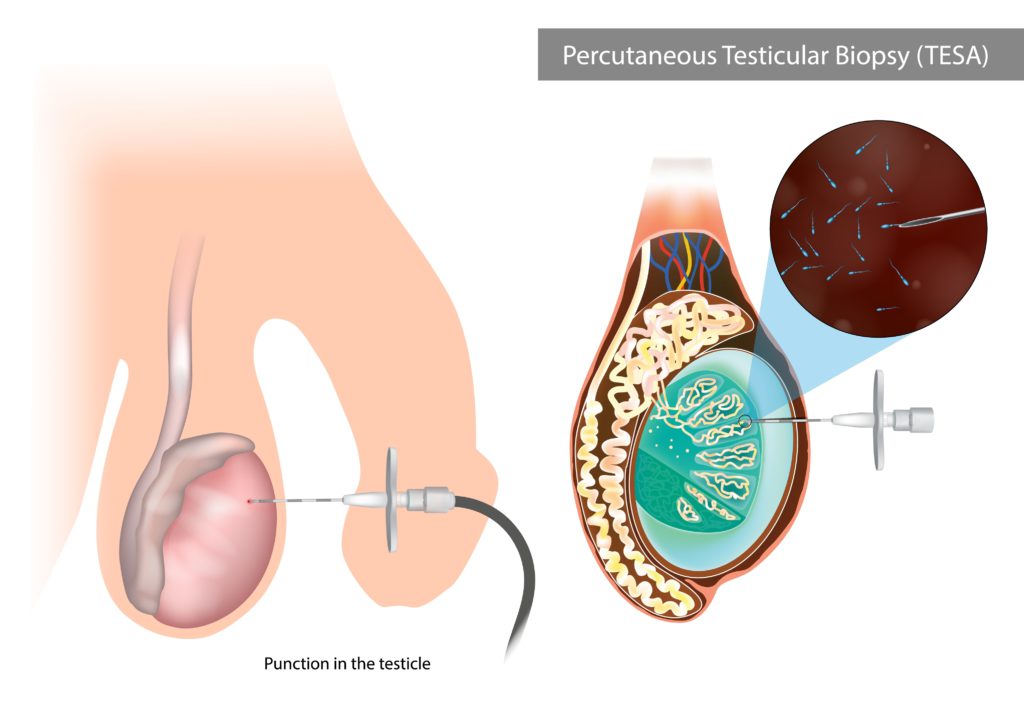Testicular Sperm Aspiration (TESA) is a medical procedure used to address certain types of male infertility, particularly in situations where sperm are not present in the ejaculate, a condition known as azoospermia. TESA is especially pertinent for men with non-obstructive azoospermia, where the issue lies in sperm production rather than a blockage in the reproductive tract.
Overview of TESA: TESA involves the direct aspiration of sperm cells from the testicle. Unlike more invasive surgical sperm retrieval methods, TESA is a less invasive procedure, typically involving the insertion of a needle directly into the testes to extract sperm.
Procedure Details: The TESA procedure is usually performed in a clinic or hospital setting. It can be done under local or general anesthesia depending on the patient’s comfort and the doctor’s recommendation. A fine needle is inserted into the testis, and suction is applied to extract sperm-containing tissue. The procedure is relatively quick, often taking just a few minutes.


Advantages of TESA: TESA is less invasive than some other sperm retrieval techniques, such as Testicular Sperm Extraction (TESE), and is often preferred when sufficient sperm can be retrieved without resorting to more invasive procedures. The recovery time is typically short, and the procedure can often be performed on an outpatient basis.
Risks and Considerations: While TESA is considered safe, there are potential risks, such as pain, swelling, or bleeding at the needle insertion site. There is also the possibility that the procedure may not retrieve sufficient sperm, necessitating additional attempts or alternative methods.
Conclusion: TESA is a valuable technique in the field of reproductive medicine, providing a solution for men with certain types of azoospermia. It offers a balance between invasiveness and effectiveness, making it a viable option for many couples facing male infertility. As with any medical procedure, it is important for individuals to discuss the potential risks and benefits with their healthcare provider to ensure the best approach for their specific fertility needs.


